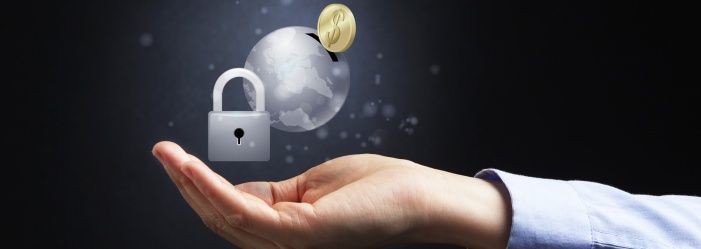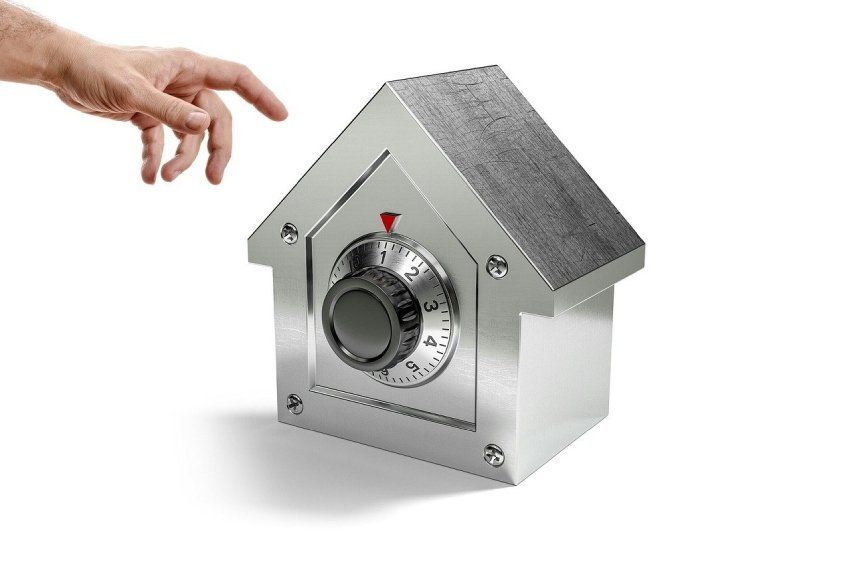Last Updated: December 20, 2023
Secure Your Valuables

Safety deposit boxes and safes figure largely in Hollywood crime movies. They are full of diamonds and bonds waiting to be stolen. If you don’t have million dollar jewelry, do you need either a safe or a safety deposit box? The answer is yes! Let’s take a look at each one and why you may want a safe or safe deposit box, what to store in them, and more importantly, what not to store in them.
The Safety Deposit Box
A safety or safe deposit box is held at a bank or credit union. One the positive side, they are very secure - the box is locked and the room is locked and there is generally a two or three step identity verification process for the tenant or lessee. They are off premise - not stored in your house so they are safe from natural disasters and burglaries - although not from damage to the bank.
On the negative side, they are only accessible when the building is open. Another issue is that the contents are not insured against damage. If what you are storing in there is irreplaceable, you need to have some insurance for the items. In addition, you have to pay an annual fee for the box.
The In-Home Safe
For this section, we are not talking about a safe hidden behind the portrait in the living room. Instead, we are discussing fireproof and waterproof safes that live in the closet or under the stairs of your home. Fireproof safes have several great attributes. On the plus side, fireproof safes are not that expensive. You can access it anytime, at your convenience.
On the negative side, they are portable, so they can be stolen. A fireproof safe means the papers will not burn but they may be heat damaged or destroyed through the intense heat generated by a house fire. Safes may also be lost in hurricanes or floods. Another generally unmentioned negative is that the fireproof and waterproof boxes can develop a high humidity problem inside. It is very annoying to pull your passport out of your fire safe only to discover that it is now soggy and moldy and must be replaced.
Which One Should You Get?
If you can afford it, consider having both a safe and a safety deposit box. There are very good reasons to have each. You can keep important documents and items as safe as possible without losing access to them.
What Should I Store?
If you are lucky enough to have both, store the following items in your safety deposit box, stored in acid free or archival quality sealed plastic bags:
- Original copies of:
- Birth certificates
- Marriage certificates
- Divorce papers
- Insurance papers
- Adoption papers
- Death certificates
- Deeds or titles to any property
- Car titles
- Rare and valuable coins
- Valuable jewelry
- Paper copies or digital copies or family photos
- Written and photo inventory of household goods for insurance replacement
DO NOT store in either your safe deposit box or fire proof safe:
- Wills
- Power of attorney
- Cash - it’s not FDIC insured
- Uninsured valuables
If you have a fireproof box, store the following:
- Copies of the following documents:
- Birth certificates
- Marriage certificates
- Divorce papers
- Insurance papers
- Adoption papers
- Death certificates
- Deeds or titles to any property
- Car titles
- The front pages or passports
- Wills
- Powers of attorney
- Social Security cards
- Insurances policies
- Credit cards you don’t carry everyday
- Car titles and extra car keys
- Safety deposit box key
- Valuable jewelry that you wear regularly
- Your passport and other identification
- Items that family members may need in an emergency
- Your attorney’s name and phone number
- Personal information about your debts
- List of your online accounts and login passwords
- List of doctors and any medications you need
- A written and photo inventory of all the items in your safe deposit box
- The location of your safety deposit box
If you can not afford the annual fees on a safety deposit box, get two fireproof safes, duplicate as many items as possible, and store one in a separate place, either your home or in a trusted family member’s home. That way the odds of losing all your important papers are lessened.
Security Tips
When using a safe deposit box, be sure to take some basic security precautions.
- Don't store the only copy of important documents like wills, medical directives, etc. Keep a copy at home in a secure location as well.
- Make an itemized list of everything stored in the box with photos. Store this list securely at home in case you need to file an insurance claim.
- Add a co-lessee to the safe deposit box agreement. Choose someone trustworthy who can access the box if you become incapacitated.
- Notify a close family member or friend of the location of your safe deposit box and where you keep the key, in case it's needed after you pass away.
- Use a discreet coded labeling system if storing multiple sets of keys or valuables.
- Check on your box 1-2 times per year to ensure your items are still there. Report any concerns to the bank promptly.
Choosing a Safe Deposit Box
When selecting a safe deposit box, consider the following:
- Location - Choose a bank branch close to your home or office for easier access. An alternative location can also be sensible in case a disaster impacts your neighborhood.
- Size - The box size needed depends on what you intend to store in it. Measure items before renting. Allow room for some future additions.
- Accessibility - Understand the bank's hours and procedures for accessing your box in case you face an emergency need. Ensure co-lessees can also conveniently access it.
- Security - Inquire about the bank's vault, guard, and surveillance protections. Look into obtaining separate insurance for your box's contents.
- Cost - Safe deposit box rental fees vary greatly, so shop around before committing. Remember that losing precious items is far costlier than an annual rental fee.
Digital Alternatives
While safe deposit boxes remain useful, some items may be better stored digitally instead.
Consider keeping digital copies of:
- Identification documents
- Insurance policies
- List/photos of household valuables
- Backup files/media of important data
- Estate planning documents
Be sure to store digital copies encrypted in secure cloud storage or on an external hard drive kept in a safe location. Update copies regularly.
FAQs
Conclusion
Safe deposit boxes remain a secure way to organize and protect your most vital possessions, documents, and valuables. When used properly alongside home storage methods, they serve as an integral part of a comprehensive organizing system.
Take time to make careful choices about box size, bank selection, co-access, and content organization. Be sure to notify loved ones of its existence as well. Stay diligent on rental fees and do periodic safety checks too. With proper precautions, a safe deposit box can provide reliable storage and peace of mind for generations.
Pacific Debt, Inc.
Since you are here on the Pacific Debt blog, you may be looking for more than helpful financial information. If you are interested in becoming debt-free, we are a
reputable and award-winning debt settlement company. If you’d like more information, we are happy to help. We will explain all your options and help you decide which is the best option for you. We can even refer you to a trusted partner if they can better meet your needs.
If you have more questions, contact one of our
debt specialists today. The initial consultation is free, and we will explain your options to you.
Reduce Your Credit Card Debt By Up to Half

BBB Reviews | 4.9/5.0 Rating









 Do Not Sell My Personal Information
Do Not Sell My Personal Information